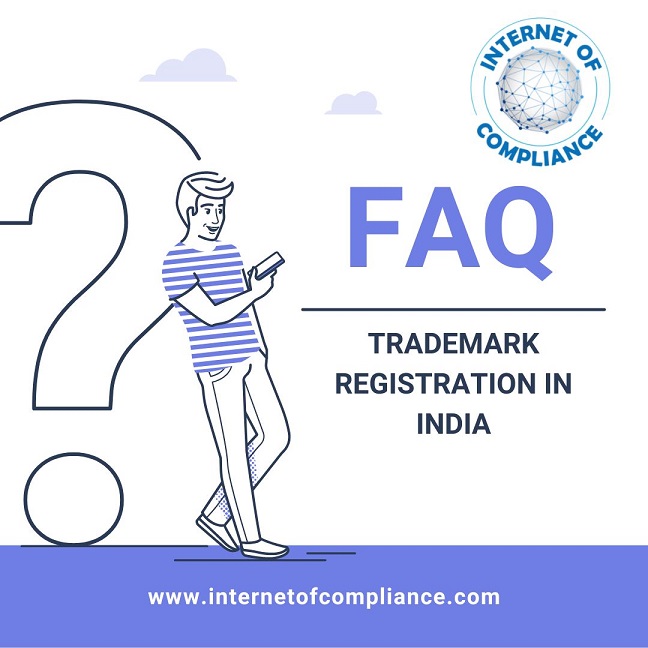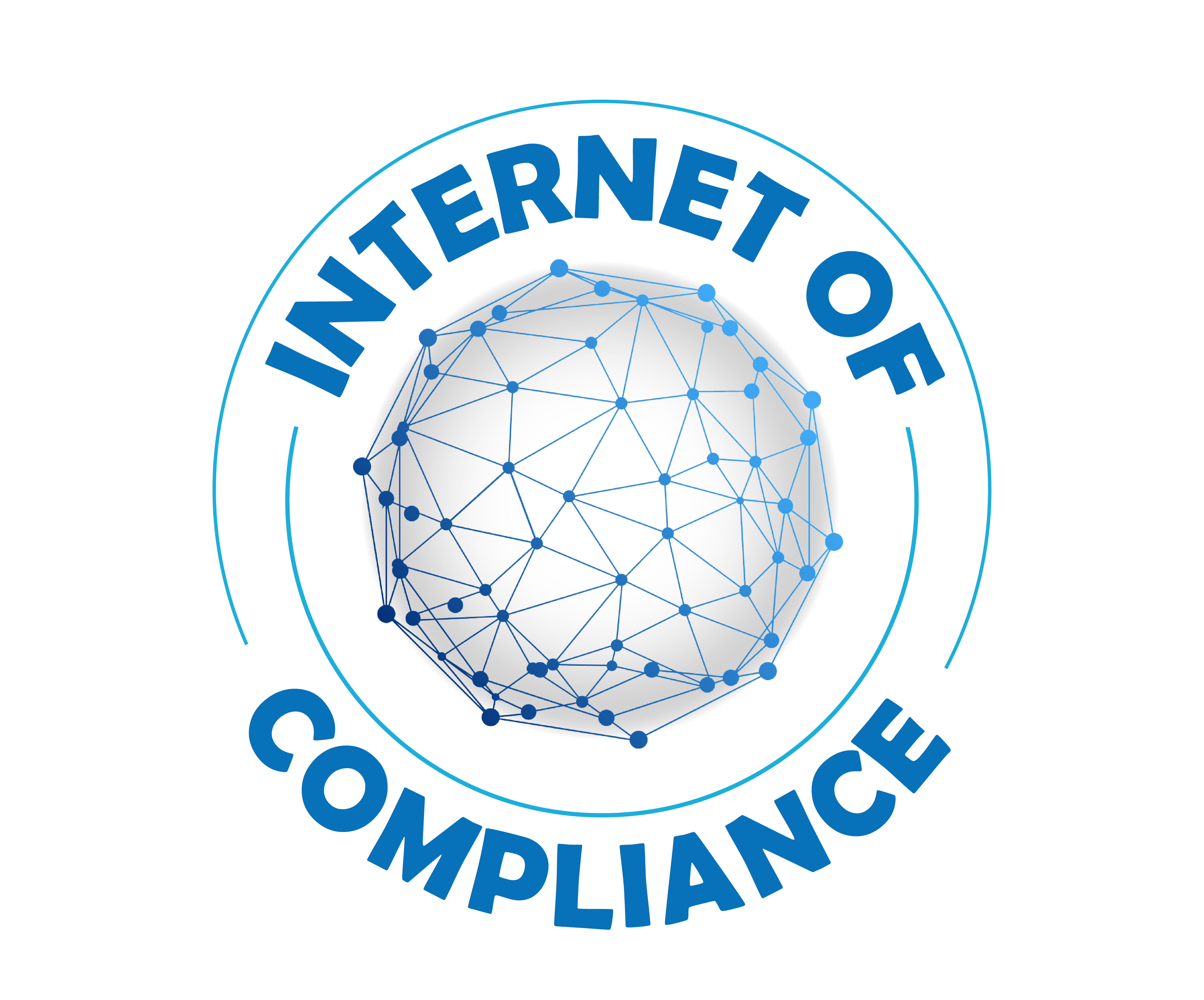FAQs on Trademark Registration In INDIA

FAQs on Trademark Registration In INDIA
"Internet of Compliance has compiled a list of frequently asked questions on Trademark Registration in India."
A trademark is a symbol, logo, word, or phrase that is used to identify and distinguish the goods or services of one business from those of another.
Trademark registration provides legal protection for your brand and helps to prevent others from using your trademark without your permission.
Trademark registration is valid for ten years from the date of application, and can be renewed for successive periods of ten years.
The different types of trademarks include word marks, device marks, combination marks, and shape marks.
The process for trademark registration in India involves filing an application with the Trademark Registry, and going through a process of examination, publication, and registration.
Any individual, partnership firm, company, or legal entity can apply for trademark registration.
The documents required for trademark registration include a copy of the trademark, proof of use of the trademark (if applicable), and proof of payment of the registration fee.
The cost of trademark registration in India varies based on the type of application, the number of classes, and the mode of application.
Yes, a trademark can be registered for more than one class of goods or services, and the registration fee will depend on the number of classes.
Yes, a trademark can be registered for a sound or smell, but the application must include a graphic representation of the sound or smell.
The process of obtaining trademark registration in India typically takes around 12 to 18 months, depending on the complexity of the application.
No, a trademark cannot be registered retrospectively, and it is important to apply for registration as soon as possible.
Yes, a trademark can be registered for a common word or phrase, but it must have acquired distinctiveness through use in relation to the goods or services for which it is being registered.
Yes, a trademark can be registered for a personal name or surname, but it must not be in conflict with any existing trademarks.
The Trademark Registry in India is responsible for examining and registering trademarks, and for maintaining a registry of trademarks.
Yes, a trademark can be registered for a non-profit organization, but the organization must provide evidence of its activities and use of the trademark.
Yes, a foreign company can apply for trademark registration in India, either through a local agent or by filing a direct application.
Yes, a trademark can be registered for a service, and the registration process is the same as for goods.
A trademark is used to identify and distinguish the goods or services of one business from those of another, while a copyright is used to protect original creative works such as books, music, and art.
A trademark is used to identify and distinguish the goods or services of one business from those of another, while a patent is used to protect new and inventive inventions or processes.
Yes, trademark registration can be done online in India through the Trademark e-filing portal.
Yes, a trademark can be registered for a product that has not been launched yet, but the application should be filed before the launch of the product.
The trademark search process in India involves conducting a search of the Trademark Registry to ensure that the proposed trademark is not already registered or in use by another business.
A registered trademark provides legal protection and exclusive rights to the owner, while an unregistered trademark has limited legal protection and may be more difficult to enforce.
Yes, a trademark can be transferred or sold to another party, and the transfer must be recorded with the Trademark Registry.
Yes, a trademark registration can be cancelled on the grounds of non-use, removal from the register, or infringement.
The renewal process for trademark registration in India involves filing a renewal application and paying the renewal fee before the expiration of the registration period.
A registered trademark is used to identify and distinguish the goods or services of one business from those of another, while a registered design is used to protect the visual appearance of a product.
No, a geographical indication cannot be registered as a trademark, but it can be protected under other laws.
Yes, a trademark can be registered for a color or combination of colors, but the application must include a clear description and representation of the colors.
Yes, a trademark registration can be opposed by another party on the grounds of similarity to an existing trademark or prior use.
A trademark is a symbol, logo, word, or phrase used to identify and distinguish goods or services, while a trade name is the name under which a business operates.
The Madrid Protocol is an international treaty that allows for the registration of trademarks in multiple countries with a single application.
The priority date is the date on which the trademark application is filed, and it determines the order of priority for competing trademark applications.
No, a trademark cannot be registered for a domain name, but a domain name can be used as evidence of use of the trademark.
Yes, a trademark registration can be renewed indefinitely as long as the renewal application and fee are filed before the expiration of the registration period.
A trademark is used to identify and distinguish the goods or services of one business from those of another, while a certification mark is used to indicate that goods or services meet a certain standard or quality.

